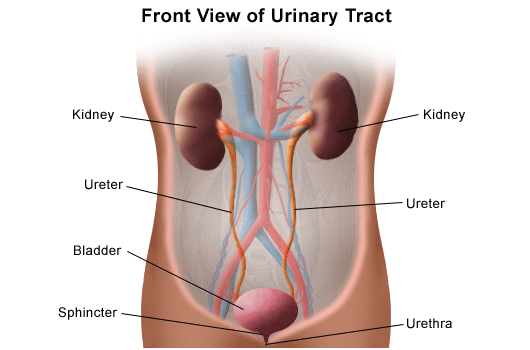
The Marvel of Homeostasis: A Comprehensive Guide to the Urinary System
The urinary system, also known as the renal system, is a complex and vital component of the human body responsible for maintaining fluid balance, eliminating waste products, and regulating various physiological processes. Comprised of the kidneys, ureters, bladder, and urethra, the urinary system plays a central role in maintaining homeostasis, which is the body’s ability to maintain a stable internal environment. In this comprehensive article, we will explore the structure, functions, and significance of the urinary system.
Anatomy of the Urinary System
The urinary system consists of several interconnected organs and structures:
1. Kidneys
The kidneys, two bean-shaped organs located on either side of the spine just below the ribcage, are the primary components of the urinary system. They are responsible for filtering blood to remove waste products and excess substances, ultimately forming urine. Each kidney contains approximately one million microscopic filtering units called nephrons, which are the functional units of the kidneys.
2. Ureters
Ureters are muscular tubes that connect the kidneys to the bladder. These tubes transport urine from the kidneys to the bladder by a rhythmic, peristaltic motion, preventing the backflow of urine.
3. Bladder
The bladder is a hollow, muscular organ that stores urine until it is expelled from the body. Its capacity to stretch allows it to accommodate varying volumes of urine. When the bladder reaches a certain level of fullness, stretch receptors signal the brain, prompting the sensation of needing to urinate.
4. Urethra
The urethra is a tube that connects the bladder to the external environment. Its primary function is to carry urine from the bladder to be expelled from the body. In males, the urethra serves a dual purpose, as it also functions as a conduit for semen during ejaculation.
Functions of the Urinary System
The urinary system serves several vital functions in the body, all of which contribute to maintaining internal stability and overall health:
1. Filtration and Excretion
The kidneys filter blood, removing waste products, excess ions (such as potassium and sodium), and metabolic byproducts. These substances are then excreted as urine, preventing the buildup of toxins in the bloodstream.
2. Regulation of Blood Pressure
The kidneys play a pivotal role in regulating blood pressure by controlling the volume of blood and the concentration of electrolytes within it. They achieve this through the renin-angiotensin-aldosterone system, which helps control blood pressure and fluid balance.
3. Electrolyte Balance
Maintaining the balance of electrolytes, including sodium, potassium, calcium, and phosphate, is crucial for proper nerve and muscle function, as well as maintaining cellular health. The kidneys regulate the levels of these electrolytes in the blood.
4. Acid-Base Balance
The urinary system helps regulate the body’s pH level by excreting hydrogen ions and reabsorbing bicarbonate ions, thereby maintaining a stable blood pH.
5. Erythropoiesis Regulation
Erythropoietin, a hormone produced by the kidneys, stimulates the production of red blood cells in the bone marrow in response to low oxygen levels in the blood.
6. Metabolism of Vitamin D
The kidneys convert inactive vitamin D into its active form, calcitriol, which is essential for calcium absorption in the intestines and maintaining bone health.
Common Urinary System Disorders
Several disorders and diseases can affect the urinary system:
1. Urinary Tract Infections (UTIs)
UTIs are bacterial infections that can affect any part of the urinary system, causing symptoms like frequent urination, painful urination, and lower abdominal pain.
2. Kidney Stones
Kidney stones are hard mineral deposits that form within the kidneys or urinary tract, leading to severe pain, blood in urine, and potential blockage.
3. Kidney Disease
Chronic kidney disease (CKD) is a long-term condition where the kidneys’ ability to filter waste and excess substances from the blood is impaired, potentially leading to kidney failure.
4. Incontinence
Incontinence is the loss of bladder control, resulting in involuntary urine leakage. It can occur for various reasons, including age, pregnancy, and certain medical conditions.
5. Bladder Cancer
Bladder cancer can develop within the bladder lining, often causing blood in the urine, frequent urination, and pain during urination.
Conclusion
The urinary system is an intricate and essential component of the human body, serving multiple functions that are vital for maintaining overall health and homeostasis. From filtering waste products and regulating blood pressure to ensuring proper electrolyte balance and erythropoiesis, the urinary system’s significance cannot be overstated. Understanding its structure, functions, and common disorders is crucial for appreciating its role in maintaining the body’s internal equilibrium and, consequently, our well-being.



